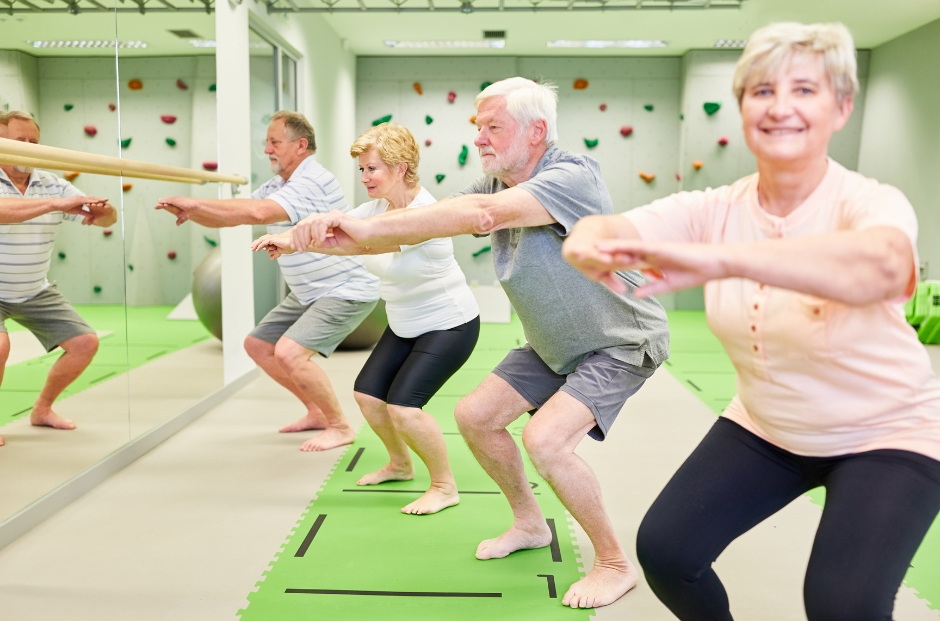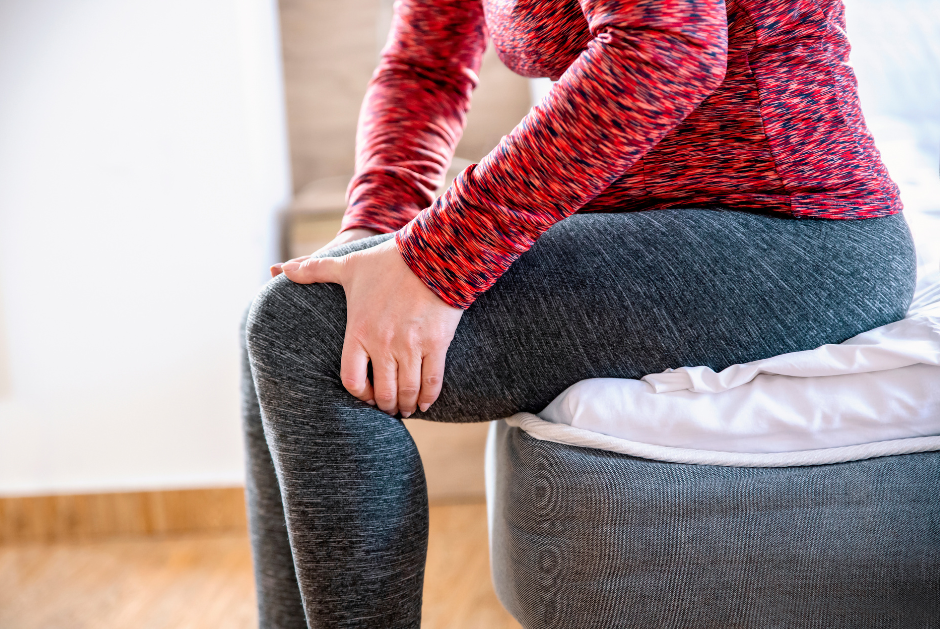Does the Chronic Knee Pain You’re Suffering From Causing You To Stress? Top 9 Questions That Have People Concerned About Knee Pain
Are you tired of suffering from chronic knee pain?
Do you find it difficult to complete your daily activities due to the discomfort?
If so, you’re not alone.
For many individuals aged 45 and over, chronic knee pain can be a challenging companion, impacting daily activities and overall quality of life. Understanding the causes, symptoms, and available treatment options is crucial for managing and alleviating this persistent discomfort. In this blog post, we’ll address the nine most common questions about chronic knee pain, offering insights and guidance for those seeking relief. Below are 9 of the most common questions about knee pain.
- Who gets knee pain?
- What causes knee pain?
- What are treatment options for knee pain?
- Are there home remedies for knee pain?
- Can exercise help relieve chronic knee pain?
- What lifestyle changes can help prevent or manage chronic knee pain?
- Do I need an X-Ray or MRI?
- I have knee pain, do I need surgery?
- What if my knee pain isn’t getting better?
Who gets knee pain?
Although knee pain can affect individuals across various age groups and backgrounds, certain populations may be more prone to experiencing knee pain due to specific risk factors. These include:
- Older adults: The risk of knee pain increases with age, primarily due to wear and tear on the joints over time, leading to conditions like osteoarthritis.
- Athletes or active individuals: People engaged in high-impact or repetitive activities, such as running, jumping, or playing sports like soccer or basketball, may be more susceptible to knee pain due to overuse injuries or traumatic events.
- Overweight people: Excess body weight places additional stress on the knee joints, increasing the likelihood of developing knee pain, particularly due to conditions like osteoarthritis.
- Workers with physically demanding jobs: Individuals involved in occupations that require repetitive movements, heavy lifting, or prolonged periods of standing may be more susceptible to knee pain due to the physical demands of their work.
- Inactive people: Lack of regular physical activity and weakened muscles can contribute to knee pain. Sedentary lifestyles may increase the risk of knee problems.
What causes knee pain?
Chronic knee pain in individuals over 45 is often attributed to conditions like osteoarthritis, where the protective cartilage in the joints wears down over time. Other common causes include ligament or meniscus injuries, tendonitis, and inflammatory conditions such as rheumatoid arthritis. Other lifestyle or genetic issues, such as being overweight or those with structural issues can increase the susceptibility of having knee pain.
What are treatment options for knee pain?
Treatment options vary depending on the cause of the knee pain. They may include rest, physiotherapy, pain medication, injections, bracing, or in severe cases, surgical interventions like knee replacement or arthroscopy.
Are there home remedies for knee pain?
While home remedies can provide relief for mild knee pain, it’s essential to note that persistent or severe pain requires professional medical evaluation.
- Ice or heat? People often wonder whether they should use ice or heat to help their knee pain. If someone is experiencing throbbing pain that lingers for a certain amount of time, especially right at the knee joint, we should use ice to calm that down. It will freeze the area and minimize the pain signals. Heat on the other hand will help increase circulation to an area, which is a great to help relieve sore and tight muscles. Hot compresses, heating pads or warm showers can helpful methods of applying heat to the neck. For more information on ice vs heat, please visit this article Home Pain Management 101: Ice or Heat? (https://bellefleurphysio.com/home-pain-management-101-ice-or-heat/)
- Compression: Use a compression bandage to wrap the knee gently. This can help reduce swelling and provide support.
- Gentle exercise: Engage in low-impact exercises to maintain joint flexibility and strengthen the surrounding muscles. Activities like swimming or stationary biking can be beneficial. There’s a globally recognized structure knee (and hip) osteoarthritis exercise program developed by GLA:D Canada that has been proven to increase function, reduce pain and decrease the likelihood of needing joint replacement surgery. For more information, please visit our group arthritis page.
Can exercise help relieve chronic knee pain?
Yes, engaging in low-impact exercises such as swimming, walking, or cycling can be beneficial for managing chronic knee pain. Strengthening the muscles around the knee and maintaining flexibility can contribute to improved joint function. However, it’s important to consult with a healthcare provider or physiotherapist to develop an appropriate exercise plan.

What lifestyle changes can help prevent or manage chronic knee pain?
Maintaining a healthy weight, staying physically active, wearing supportive footwear, and avoiding prolonged periods of inactivity are lifestyle changes that can contribute to preventing or managing chronic knee pain.
Do I need an X-Ray or MRI?
It’s important to note that diagnostic imaging is not always necessary for knee pain, particularly if there are no red flags or indications of serious underlying conditions. Your healthcare provider will assess your individual case, taking into account your symptoms, medical history, and physical examination findings, before determining the need for imaging.
I have knee pain, do I need surgery?
The decision to undergo surgery for knee pain depends on the underlying cause of the pain, its severity, and how well it responds to conservative treatments. Not all individuals with knee pain will require surgery. Many cases of knee pain can be effectively managed through non-surgical approaches. However, in certain situations, surgery may be recommended.
What if my knee pain isn’t getting better?
If knee pain has lasted over 6 weeks, is getting worse instead of improving, or if new symptoms start to appear, it would be a good opportunity to speak to a healthcare practitioner. In some cases, chronic knee pain may be a symptom of more serious conditions such as rheumatoid arthritis or gout. It’s crucial to address persistent pain promptly to rule out underlying health issues and receive appropriate care.
If you’re worried about neck pain that you are experiencing and would like to speak to a Physiotherapist, click the link below and fill out the form to have one of our clinicians call you. If you would like to find out more about neck pain, please visit our Knee Pain page, we even have a free report entitled – “7 Simple Ways To Live With Less Knee Pain While Still Staying Active“ – with more tips on relieving neck pain.








